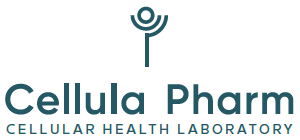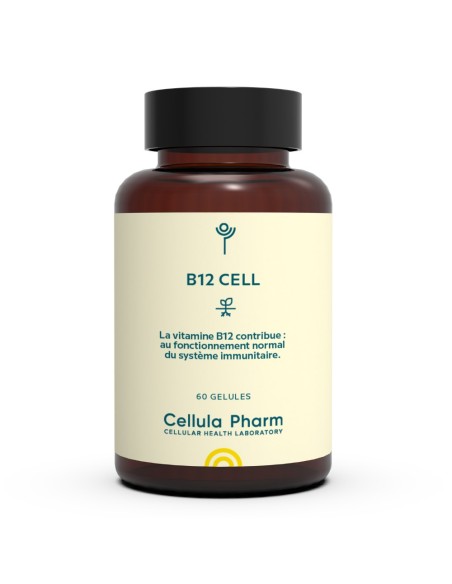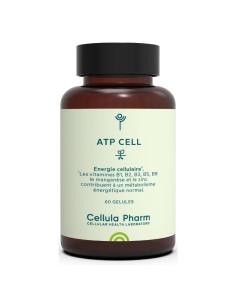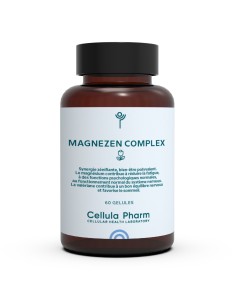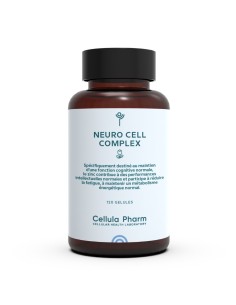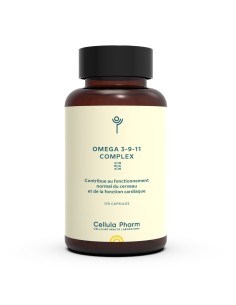B12 CELL
5 Reviews
Dietary supplemeVitamin B12-based dietary supplement. Specially formulated by our experts to :
- Ensure proper assimilation thanks to the active form of vitamin B12: methylcobalamin
- Provide optimal dosage: 1000 µg
- 60-day program
- Additive-free
- Vegan
Composition per daily dose:
| Actives : | 1 capsule | VNR* |
| Methylcobalamin | ||
| - including Vitamin B12 | 1000 µg | 40,000% |
| Excipients : ORGANIC acacia fiber, vegetable capsule (HPMC) | ||
Ingredients for 1 dose (1 capsule):
Organic acacia fiber, vegetable capsule (HPMC), methylcobalamin
For optimum effectiveness, take 1 capsule a day. Take every day.
Dietary supplement.
- Not a substitute for a varied, balanced diet or a healthy lifestyle.
- Do not exceed recommended doses.
- Keep out of reach of young children.
- For adults only.
- Do not use if intolerant or allergic to any of the ingredients.
- Pregnant and breast-feeding women should seek the advice of a health professional before taking food supplements.
- Store in its packaging, away from light, heat and moisture.
5 Reviews
Cette vitamine B12 m’a été recommandée par mon praticien. Elle est facile à prendre, bien tolérée et adaptée à une utilisation en cure.
Je manquais de vitamine B12, mon taux est remonté
Soutien B12 car grosse carence et important pour mon système cardiovasculaire. Recommandé par mon médecin.
B12 commandée pour ma maman (80 ans) car en manque selon ses analyses sanguines.
Dans mon cas, idéal en complément d'une alimentation vegan.
You might also like
